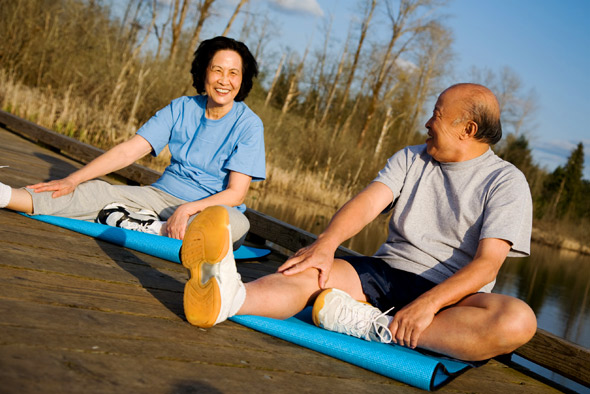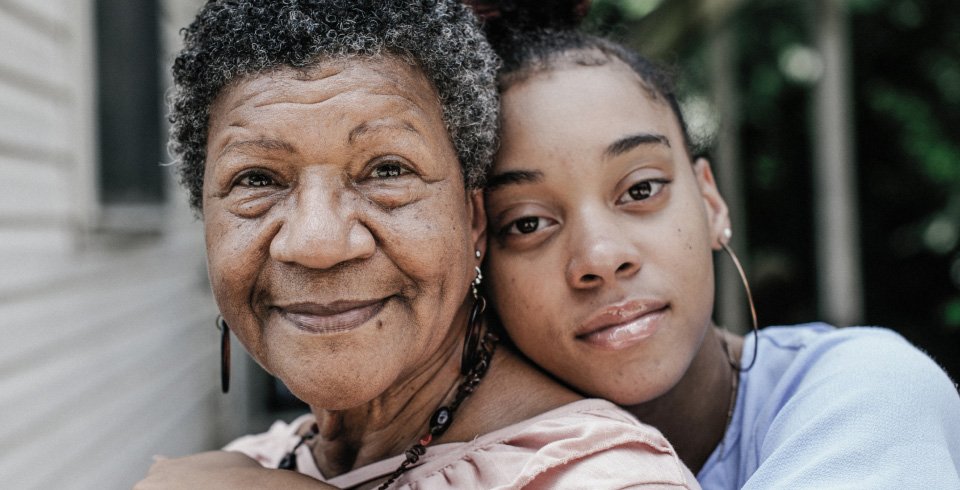
When Living with Memory Loss - Motion as Lotion

As we enter the New Year, we will be bombarded with reasons to exercise from endorphin production for winter blues to weight loss for swimsuit season. Exercise is as common a topic as the tradition of the January White Sales. However, with the overlay of dementia in your life as either an individual with dementia or the caregiver, the appeal to exercise falls flat. With dementia, our physical look may well be less concerning than our cognitive strength. This year, consider the following as evidence that exercise is as good for brain flexibility as it is for muscle flexibility.
Research shows both the caregiver and the individual with dementia benefitted from a multicomponent exercise intervention.1 An exercise routine which included muscle strengthening, aerobics, balance and postural exercise done twice weekly showed significant benefits in cardiorespiratory fitness, upper and lower body strength, agility and the ability to perform daily activities for both care companions. Cognitive change was mitigated and quality of life was improved.
If that is not enough evidence of the value of exercise in the dementia world, consider this: A study looking at mind-body exercise found global cognition was positively impacted by exercise in multiple stages of dementia.2 This result from the study was particularly true with dance as a mind-body exercise.
What defines mind-body exercise? This is exercise which requires simultaneous cognitive processing, like dance.3 In particular, research shows exercise which includes a focus on attention and executive functioning is most effective in improving brain health. In comparison to static resistance and flexibility training, functional mobility training like walking is more beneficial to your brain.
Virtual reality exercise is another strategy being considered in brain health research. A virtual reality Tai Chi intervention was found to have a protective physical and cognitive effect. The study suggests the best brain health benefits come from virtual reality exercises which are highly interactive.4 This is another reference to mind-body exercise.
The final piece of research supporting exercise for individuals with dementia is fall prevention. A sample of nursing home residents living with dementia who participated in a regular exercise intervention were less likely to have sustained moderate/serious fall-related injuries at their 12-month follow-up. This finding is a powerful rational for a good regular exercise plan.
Motion is the lotion for your joints, but it is mind-body exercise which best insures your brain’s continued health and flexibility.
By-line: Cate McCarty, PhD, ADC has been collaborating with Arden Courts in a variety of roles since the late 90’s. Her background in nursing, activities and admissions has given her a passionate commitment to quality of life for the individual and family with dementia. Cate is now personally caring for her spouse who has an FTD diagnosis.
Footnotes
1Borges-Machado, F., Ribeiro, O., Sampaio, A., Marques-Aleixo, Meireles, J., et al. (2018), Feasibility and impact of a multicomponent exercise intervention in patients with Alzheimer’s Disease: A pilot study, American Journal of Alzheimer’s Disease and Other Dementias, Dec. 9:15331751881355.
2Wang, S., Yin, H., Jia, Y., Zhao, L., Wang, L. et al, (2018). Effects of mind-body exercise on cognitive function in older adults with cognitive impairment: A systematic review and meta-analysis, Journal of Nerves and Mental Disorders, 206(12): 913-924.
3Zhang, W., Low, L. F., Gwynn, J. D., and Clemson, L. (2018). Interventions to improve gait in older adults with cognitive impairment: A systematic review, Journal of American Geriatric Society, Dec 2, doi: 10.1111/jgs 15660.
4Hsieh, C. C., Lin, P. S., Hsu, W. C., Wang, J. S., Huang, Y. C., et al. (2018). The effectiveness of a virtual reality-based Tai Chi exercise on cognitive and physical function in older adults with cognitive impairment, Dementia Geriatric Cognitive Disorders, 46(5-6), 358-370.
5 Toots, A., Wiklund, R., Littbrand, H., Nordin, E., et al. (2018). The effects of exercise on falls in older people with dementia living in nursing homes: A randomized controlled trial, Journal of the American Medical Directors Association, 18: 30582-30586.


